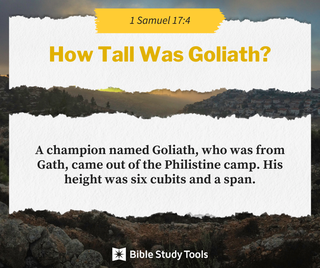
- Recent Translations
- All Translations
Sāmǔĕrjìshàng 17:5
Share
Settings
Images for Sāmǔĕrjìshàng 17:5

Sāmǔĕrjìshàng 17:5 Meaning and Commentary
And he had an helmet of brass upon his head
This was a piece of armour, which covered the head in the day of battle; these were usually made of the skins of beasts, of leather, and which were covered with plates of iron, or brass; and sometimes made of all iron, or of brass F7; as this seems to have been:
and he was armed with a coat of mail;
which reached from the neck to the middle, and consisted of various plates of brass laid on one another, like the scales of fishes F8, so close together that no dart or arrow could pierce between:
and the weight of the coat was five thousand shekels of brass:
which made one hundred and fifty six pounds and a quarter of zygostatic or avoirdupois weight; and therefore he must be a very strong man indeed to carry such a weight. So the armour of the ancient Romans were all of brass, as this man's; their helmets, shields, greaves, coats of mail, all of brass, as Livy says F9; and so in the age of the Grecian heroes F10.
F7 Vid. Lydium "de re militari": l. 3. c. 5. p. 63.
F8 "----Rutilum thoraca indutus anis Horrebat squamis----" Virgil. Aeneid. l. 11.
F9 Hist. l. 1. c. 22.
F10 Pausan. Messenica, l. 3. p. 163. So Homer frequently describes the Grecians with a coat of mail of brass.